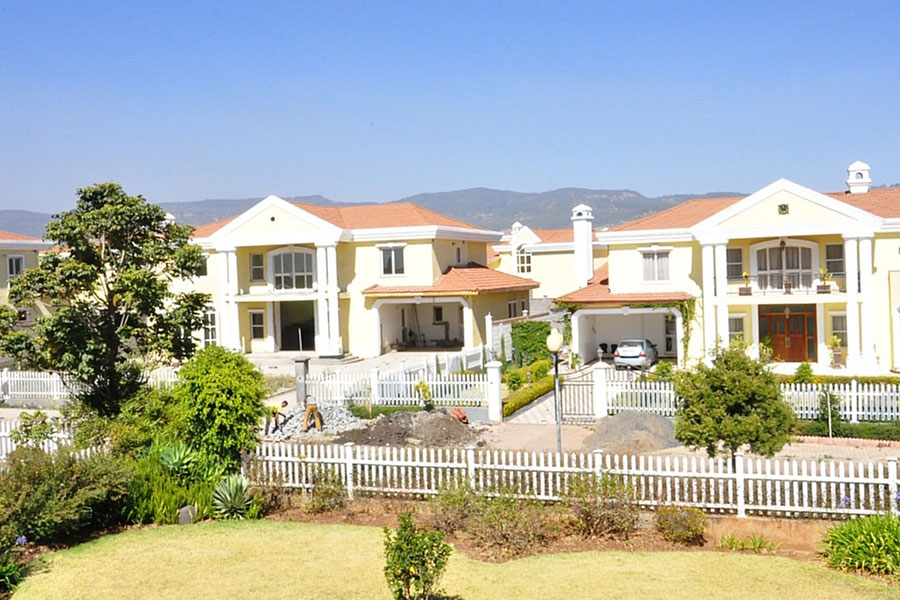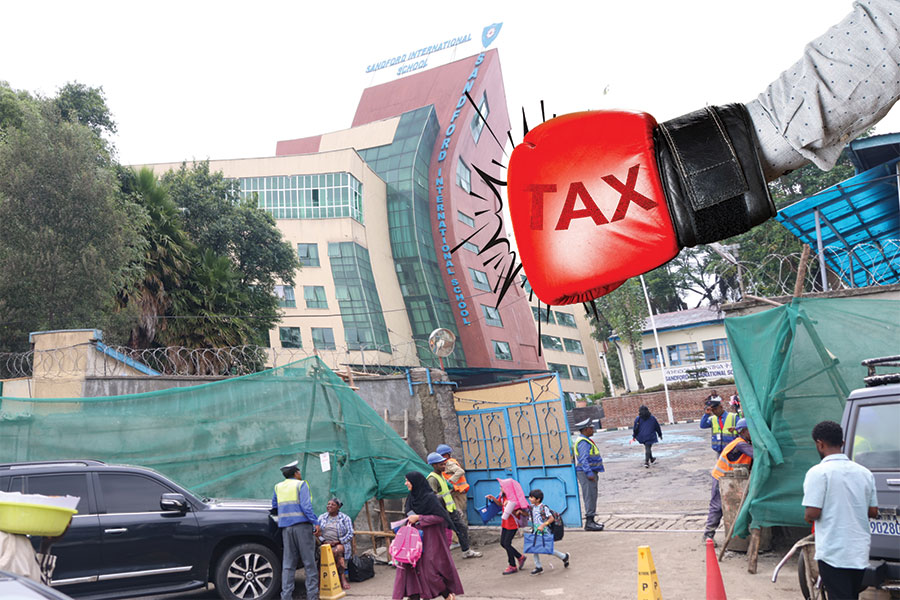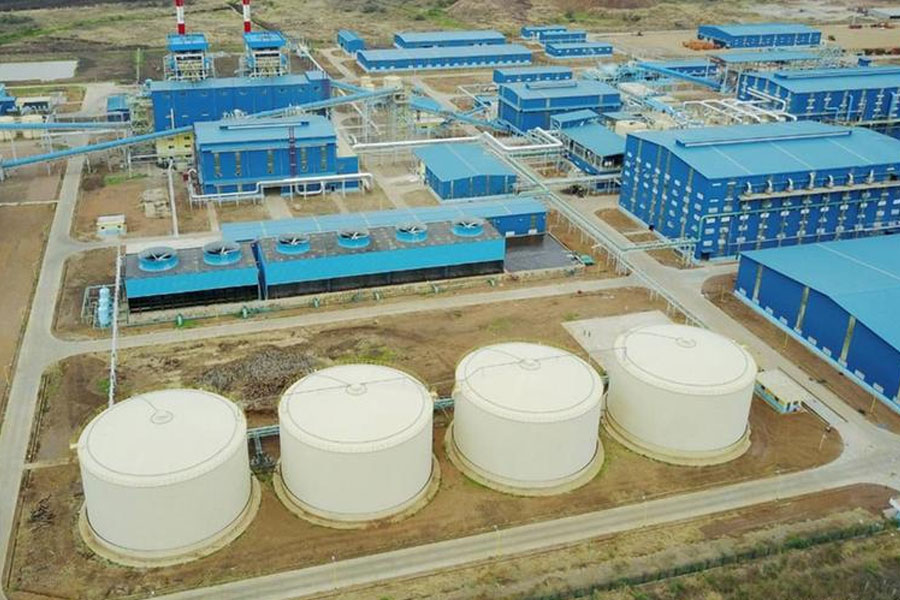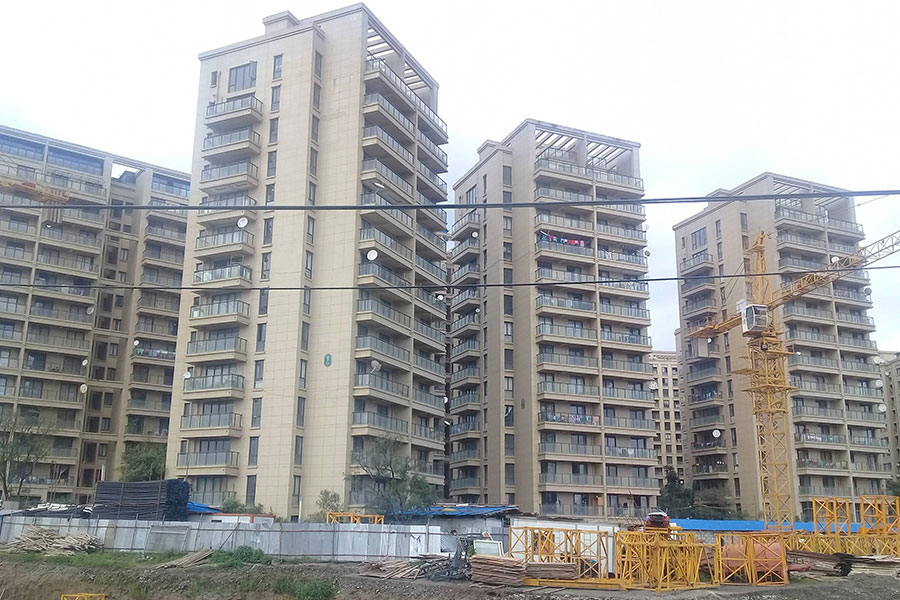
Fortune News | Dec 05,2018
Nov 2 , 2019
By DIBORA SAMSON ( FORTUNE STAFF WRITER
)
The Federal Supreme Court has remanded the case between May Real Estate Plc and 24 homebuyers back to the Federal High Court. This comes three years after another court battle between the real estate company and the homebuyers that was closed by the Council of Constitutional Inquiry after a ruling in favour of the latter.
The current pending case was set in motion in 2016 after the real estate developer took the homebuyers to the Federal High Court for breaches against the contract signed between the two parties in 2006, as well as for costs to May following the final ruling at the Council.
In its claim, the Real Estate firm asserted that the homebuyers did not finalise payments they agreed to make in the contracts they signed; did not pay for their share of the cost incurred by the developer for the facilities used by all homebuyers in the apartment buildings; and failed to pay value-added tax (VAT) payments and mortgage payments.
According to the homebuyers’ defense, while they have made two phases of payments, according to their contractual agreement, they are not entitled to pay the next two phases, because the developer did not finalise construction of the houses.
They also stated that the company did not install a number of home appliances according to their agreement and that VAT payments and a share of the cost of the facilities for the entire apartment buildings was not a part of their contract. As for mortgage payments, the homebuyers claimed that they did not agree for the bank to take out loans in their name.
After examining the case, the lower court ruled on June 11, 2018, that the homebuyers should pay the third round payments. However, the company cannot claim the fourth round payment unless it finishes the construction of the houses and has transferred them to the owners. It was also ruled that the homebuyers should pay the interest rate of over nine million Br on their homes to the real estate company.
The Federal Court also ruled that the homebuyers are not liable to pay VAT or for the shared facilities, as neither were stated separately in the contract that was signed.
Following this ruling, May appealed to the Supreme Court against the decisions given by the lower court. It also complained about the report presented by the consultant, Afet, that evaluated the construction, stating that the party lacked neutrality.
After evaluating the case, the Supreme Court made its ruling on October 8, 2019. It remanded some of the claims back to the Federal High Court while upholding the others.
The Supreme Court decided that the matter of the neutrality of the consultant, installation of appliances, VAT, lease payments and the homebuyers' share of the facilities of the apartment buildings must be determined by the Federal High Court.
This court battle follows another case between the two parties. It began after May requested that 114 of its customers who bought units in its apartment buildings increase payments. Twenty-four of these customers refused, leading to May terminating their contracts.
After the homebuyers took May to court and the case eventually was appealed by the developer to the Council of Constitutional Inquiry in 2016, it claimed that it has been denied its right of freedom of contract. The Council, nonetheless, ruled in favour of the homebuyers, forcing May to hand over the apartments in the condition they are in.
Shortly after that case was settled by a final decision by the Council, May initiated this case, which currently finds itself in the hands of the Federal High Court.
PUBLISHED ON
Nov 02,2019 [ VOL
20 , NO
1018]

Fortune News | Dec 05,2018

Fortune News | Jan 19,2019

Radar | Oct 05,2025

News Analysis | May 04,2025

Commentaries | Aug 03,2025

Fortune News | Feb 18,2023

Fortune News | Jan 03,2025

Fortune News | Aug 28,2021

Radar | Feb 13,2021

Fortune News | Aug 04,2024

Dec 22 , 2024 . By TIZITA SHEWAFERAW
Charged with transforming colossal state-owned enterprises into modern and competitiv...

Aug 18 , 2024 . By AKSAH ITALO
Although predictable Yonas Zerihun's job in the ride-hailing service is not immune to...

Jul 28 , 2024 . By TIZITA SHEWAFERAW
Unhabitual, perhaps too many, Samuel Gebreyohannes, 38, used to occasionally enjoy a couple of beers at breakfast. However, he recently swit...

Jul 13 , 2024 . By AKSAH ITALO
Investors who rely on tractors, trucks, and field vehicles for commuting, transporting commodities, and f...

Oct 4 , 2025
Eyob Tekalegn (PhD) had been in the Governor's chair for only weeks when, on Septembe...

Sep 27 , 2025
Four years into an experiment with “shock therapy” in education, the national moo...

Sep 20 , 2025
Getachew Reda's return to the national stage was always going to stir attention. Once...

Sep 13 , 2025
At its launch in Nairobi two years ago, the Africa Climate Summit was billed as the f...